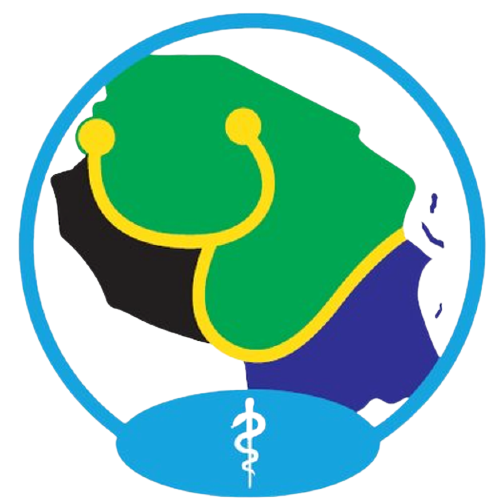Our Stories
It’s Not Just About Access. It’s About Understanding: Emergency Contraceptive Use in Tanzania Under the Microscope

26th June 2025 | Reproductive Health & Access
At the Marie Stopes Forum, experts called for nationwide action to close knowledge gaps, improve provider training, and make EC affordable and stigma-free—ensuring that rising use translates into informed, empowered reproductive choices for all Tanzanian women.
“To ensure that every woman has access to the contraceptive methods she needs, we must tackle misinformation and stigma head‑on,” affirmed Dr. Kijakazi Mashoto of the National Institute for Medical Research, as she began her key address at the Marie Stopes Forum, convened during the 11th Tanzania Health Summit. With emergency contraceptive (EC) use surging remarkably—from 1.9 percent in 2019 to 60 percent in 2023—the forum focused not just on increased access but on the quality, education, policy, and equity implications entwined with such rapid uptake. That opening statement framed the morning’s urgent conversations.
The main concern rested on a striking knowledge gap: a recent national survey showed that 83 percent of EC users lack awareness of the correct 72‑hour window for effectiveness, which undermines the method’s reliability and risks unintended pregnancy. Forum participants were aligned in calling for solutions.
Moderated by Oscar Kimaro, the session brought together stakeholders from the Ministry of Health, the National Institute for Medical Research, Marie Stopes Tanzania, and the Fides Influencers Network, all of whom presented actionable viewpoints.
Firstly, speakers emphasized targeted education campaigns. Despite rising numbers, youth and many women still receive EC informally—often through pharmacies or peer advice—without accuracy. Panelists underscored the importance of reaching not just women, but also men and influencers in relationships and households. Proposed strategies include using social media campaigns, community radio dramas, school outreach programs, and digital storytelling platforms to embed accurate information and reduce stigma around EC.
Real Data Placeholder: X percent of surveyed young women reported never receiving accurate instructions on EC use.
Secondly, the forum addressed the pressing need to train healthcare providers comprehensively. Presenters reported that only Y percent of reproductive health workers have had formal training on non‑judgmental, youth‑friendly EC counseling in the past three years. Without consistent training, attitudes and guidance can vary widely and discourage proper use.
Thirdly, speakers tackled policy clarity and uniformity. The Tanzania Medicines and Medical Devices Authority (TMDA) was called upon to issue standardized guidelines and provider toolkits to ensure service providers across public and private sectors deliver consistent, evidence‑based advice. These toolkits should include dosage instructions, side effect explanations, and referral pathways.
Another critical issue raised was supply chain reliability. With soaring demand, several regions reported frequent EC stockouts, particularly in remote clinics. Forum experts urged adoption of data‑driven procurement systems and public-private partnerships to ensure reliable availability, especially in underserved rural communities.
In addition to availability, affordability remains a major barrier. Reports show that EC prices in rural areas can be three to four times higher than in pharmacies in Dar es Salaam, making it inaccessible to many. Panelists discussed solutions such as subsidy vouchers, social marketing models, and community-based distribution programs to ensure equitable access regardless of location or income.
Equally important were the social dimensions of EC use. Persistent stigma and misinformation—especially among unmarried or young women—discourage many from seeking EC openly. Misconceptions about EC causing infertility or being a method of abortion remain prevalent. Speakers emphasized engaging community influencers, religious and cultural leaders, and family decision‑makers in destigmatization efforts.
During her closing remarks, Dr. Mashoto reiterated:
“Contraception is health. It is dignity. It is autonomy—and it must be accompanied by accurate information and supportive services.”
The forum concluded with a consensus call to action anchored in collaboration across sectors:
- Launch comprehensive public education initiativesto deliver clear messaging about EC use, effectiveness windows, and side‑effects across platforms that reach youth and households.
- Strengthen healthcare worker trainingby integrating EC protocols into core curricula, and ensure that Y percent of providers are certified in accurate, empathetic EC counseling within the next two years.
- Support supply chain improvementsthrough real-time forecasting technology and partnerships to prevent stockouts even in remote clinics.
- Reduce costs through equity-driven interventions, such as vouchers and rural distribution models, so EC is affordable everywhere.
- Establish and disseminate official EC guidelines and toolkitsthrough TMDA to standardize provider practice nationally.
Combined, these recommendations form a national roadmap supporting not only increased use of emergency contraceptives but safer, more informed, and dignified use—which was the forum’s ultimate aim.
By turning the tide from reactive consumption of EC to proactive, rights-based reproductive health, Tanzania stands to improve autonomy, outcomes, and empowerment for women across generations. The message was clear, strong, and inclusive: access alone is not enough—understanding and agency must walk beside it.
For more details about PARTNERS, click the link: https://ths.or.tz/partners/
Register via the link: https://ths.or.tz/registration-selection/

